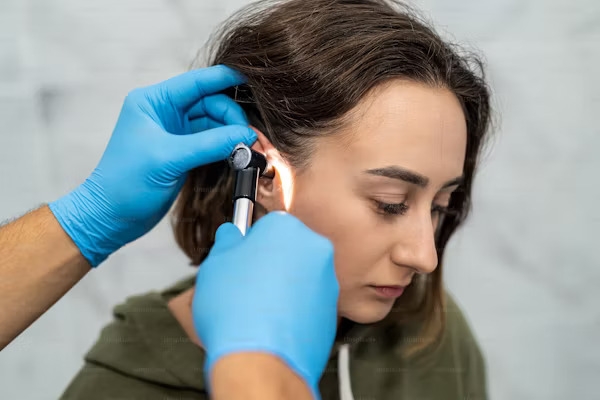Tinnitus Management Techniques & Hearing Aids Cleaning: A Complete Guide

Tinnitus, often described as ringing, buzzing, or humming in the ears, affects millions of people worldwide. While it isn’t a disease itself, it can be a symptom of underlying conditions such as hearing loss, stress, or ear infections. Fortunately, several tinnitus management techniques can help reduce its impact. Among these, sound therapy for tinnitus is one of the most effective ways to manage symptoms. Additionally, for individuals using hearing aids, regular hearing aid cleaning is essential for maintaining sound quality and preventing further hearing complications.
This article explores the best ways to manage tinnitus, the benefits of sound therapy, and essential hearing aid maintenance tips.
Best Tinnitus Management Techniques
While tinnitus has no one-size-fits-all cure, these strategies can help individuals manage symptoms effectively:
1. Sound Therapy for Tinnitus Relief
Sound therapy is a widely recommended approach to making tinnitus less noticeable. It works by providing external sounds that reduce the contrast between silence and the ringing or buzzing caused by tinnitus. Common types of sound therapy include:
- White Noise Machines – These devices generate background noise that can mask tinnitus, making it less bothersome.
- Hearing Aids with Tinnitus Masking – Many modern hearing aids come equipped with built-in sound therapy features that play gentle background sounds to help mask tinnitus.
- Nature Sounds & Ambient Noise – Listening to calming sounds like ocean waves, birdsong, or gentle rainfall can help distract from tinnitus.
- Tinnitus-Specific Mobile Apps – Apps designed for tinnitus relief offer customizable soundscapes and relaxation exercises.
By incorporating sound therapy into daily routines, individuals can experience relief from tinnitus symptoms.
2. Stress Management & Relaxation Techniques
Stress and anxiety are known to make tinnitus symptoms worse. Practicing relaxation techniques can help reduce the intensity of tinnitus. Effective methods include:
✔ Meditation & Mindfulness – These practices promote relaxation and reduce tinnitus-related stress.
✔ Yoga & Deep Breathing Exercises – These activities can help lower stress levels and improve overall well-being.
✔ Regular Exercise – Physical activity boosts circulation and overall health, which may help manage tinnitus.
✔ Adequate Sleep – A proper sleep routine can minimize tinnitus-related fatigue and stress.
3. Cognitive Behavioral Therapy (CBT) for Tinnitus
CBT is a psychological treatment that helps individuals change their perception of tinnitus. Instead of focusing on the distress caused by the ringing in the ears, CBT helps shift attention away from it, making it less bothersome over time.
4. Lifestyle Changes & Dietary Adjustments
Some foods and lifestyle choices can trigger or worsen tinnitus. To minimize symptoms, individuals should consider:
✔ Reducing caffeine, alcohol, and salt intake
✔ Staying hydrated and eating a balanced diet
✔ Avoiding loud noises or using ear protection in noisy environments
The Importance of Hearing Aid Cleaning
For individuals using hearing aids to manage tinnitus or hearing loss, proper hearing aids cleaning is crucial. A buildup of earwax, dirt, and moisture can affect hearing aid performance and even lead to ear infections.
How to Clean Hearing Aids Properly
1️⃣ Daily Wiping – Use a dry, soft cloth to clean the hearing aid casing and remove moisture.
2️⃣ Wax Removal – Use a hearing aid cleaning brush or wax pick to clear earwax buildup from the earpiece.
3️⃣ Changing Wax Guards & Filters – Regularly replace wax guards to maintain clear sound quality.
4️⃣ Proper Storage – Store hearing aids in a dry, protective case when not in use to prevent moisture damage.
5️⃣ Professional Cleaning – Schedule periodic professional cleanings to ensure hearing aids function optimally.
Conclusion
Managing tinnitus effectively involves a combination of sound therapy for tinnitus, stress management, and lifestyle changes. For those using hearing aids, maintaining proper hearing aid cleaning is essential for clear hearing and preventing further complications.
If tinnitus is affecting your quality of life, consult a hearing specialist for personalized solutions. With the right strategies and consistent hearing aid care, you can reduce tinnitus symptoms and enjoy better hearing health.
- Industry
- Art
- Causes
- Crafts
- Dance
- Drinks
- Film
- Fitness
- Food
- Juegos
- Gardening
- Health
- Home
- Literature
- Music
- Networking
- Other
- Party
- Religion
- Shopping
- Sports
- Theater
- Wellness
- News


